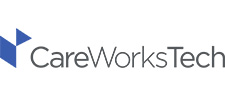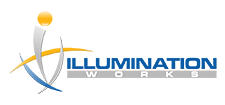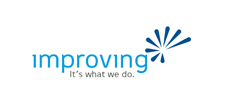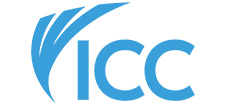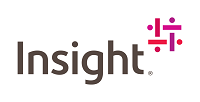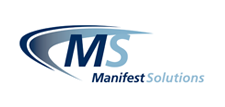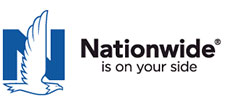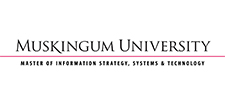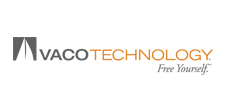Facilitator – Mary Kaufmann | 12:00 — 01:15
Abstract
To truly innovate you need to have agility. Often times, truly innovative organizations create things they do not expect or find a new problem they can solve with their existing products. Join us for an interactive discussion that with people who lead innovation for organizations from startups to billion dollar companies.
Facilitator
Mary Kaufmann is the Chief Learning Officer at Pillar Technology. Mary spent the past five years serving as an Assistant Professor at Muskingum University teaching in a graduate program called MISST that integrates business and technology into one degree. She also contributed to a book published in 2002, written in association with the Sandberg Leadership Center.
Mary holds a BS in Computer Science and Business, an MBA, and a Master of Divinity. Over the course of her 30 years of professional experience, she has worked with public, private, and non-profit companies. Consistently an engineer for positive change, she led the way in implementing new technology, leading management development, as well as strategic design and implementation.
As a passionate student of change, Mary has spent most of her career as a “change agent.” She lives on a farm in Dresden, Ohio with her husband Brad, and her two children, Emily (19) and William (15).
Panelists
Mekka Don is a hip-hop artist, attorney, and entrepreneur who has led the pack in revolutionizing the way Independent artists fund their music production and generate revenue. In 2014, Mekka Don crowdfunded his debut album with a goal of raising $12,500 in 35 days. In that time he raised over $21,000 – over 150% of his goal. As a result he was featured on several news media from MTV News, Yahoo!, to The Source Magazine. Most importantly, he was able to successfully release his album (“The Dream Goes On”) which reached #2 on Amazon’s “hottest releases” in the first week.
Being an attorney also helped Mekka Don navigate the business side of the music industry, and as a result he has signed over a dozen music licensing agreements with various companies and networks including: The Ohio State University, ESPN Networks, Big Ten Network, 10TV, Big East Network, and many more. Additionally, Mekka Don’s music has been played on WNCI, Power 107.5, Sunny 95, Sirius Radio, at The Schottenstein Center, and at every home game in The Shoe (OSU) the past two years.
Mekka Don is from Columbus, Ohio but currently lives in New York City. He is a former Ohio State University football player where he graduated cum laude with a degree in Political Science (c/o 2002) in only three years and was a member of OSU’s Homecoming court. He then went on to get his J.D. from NYU School of Law. Upon graduation, Mekka Don practiced as an attorney in New York at Weil, Gotshal, and Manges before jumping out on his own to pursue his musical and entrepreneurial dreams. His motto is, “Follow Your Heart, But Use Your Brain.”
Kevin Fisher is Associate Vice President of Digital Marketing at Nationwide and oversees Digital Strategy, and Advisory Services. He leads the client-facing Digital teams that support all brands in the enterprise through a combination of strategic advisory, education, and execution services. Kevin is a ScrumAlliance Certified ScrumMaster, and Certified Product Owner and he has trained 150+ Nationwide Associates on the transition to Agile methods. Recent speaking engagements for Kevin include: Agile 2013, Agile Leaders Network 2011, Agile 2010, Scrum Gathering 2010, Agile 2009. Prior to joining Nationwide, Kevin’s experience includes Internet Product Management and technology consulting for insurance, financial services, and high tech companies ranging from early stage startups to Fortune 500. Kevin is a graduate of The Ohio State University.
Rich Langdale is a serial entrepreneur who started his first businesses in high school. In 1986, while attending the Ohio State University, Langdale founded Digital Storage (a wholesaler of computer storage) which led to international partnerships in Holland, France and Latin America. These partnerships were later complimented by offices in Canada and the Pacific Rim.
To begin to more appropriately manage what was becoming a conglomerate of businesses that were making further investments, Langdale formed a holding company which was later named NCT Ventures. Through this 20+ year history Langdale has made over 30 investments. The companies have had offices all around the globe, sold and raised hundreds of millions of dollars, once hired 1,000 people in a three-month period, launched new products, lead industries, and are fun places to work with vibrant ethical cultures.
Additionally, Rich co-founded and co-funded the Center for Entrepreneurship at The Ohio State University, which quickly earned a tier one ranking from Entrepreneur Magazine. In addition, he was instrumental in the development of OSU’s entrepreneurship and commercialization curriculum.
Langdale is an avid supporter of Central Ohio and chaired the Columbus Chamber of Commerce’s Entrepreneurship Steering Committee (ESC) for three years. He previously served on the Board of Directors for Nationwide Children’s Hospital Research Board, the Columbus Museum of Art and Columbus Technology Council/Business Technology Center. His awards include the Power 100, Fast 50, OSUs Supporter of Entrepreneurship Award and Inc. Magazine’s Entrepreneur of the Year. Rich is also a member of the Young President’s Organization and previously served as Education Chair and Chapter Chair.
In addition to growing successful businesses, Rich has also grown his most important asset, his family. He has been blessed with a wonderful wife, Paige, and three incredible children. Rich enjoys spending time with his family, mountain biking, skiing, painting, and playing basketball, golf, and the guitar.
Wil Schroter is a serial entrepreneur and fundraising veteran, having founded nine Internet companies in the last 20 years, the last three venture backed.
At age 19 he started his first company, Blue Diesel, which merged with what is today inVentiv, a company that now generates over $2 billion per year in billings and has over 13,000 employees globally.
Wil is currently the CEO and Co-Founder of Fundable.com, a crowdfunding platform for small businesses that allows them to raise capital online. In the past year over $50 million has been committed to startups on Fundable.
Wil has been named Young Entrepreneur of the Year by the U.S. Small Business Association and has also been recognized by the Ernst and Young Entrepreneur of the Year program. He is a regular contributor to Forbes, Entrepreneur Magazine and The Wall Street Journal.
Brent Stutz is a Senior Vice President at Cardinal Health, a Fortune 21 health care products and services company dedicated to improving the cost-effectiveness of health care. Brent has nearly 25 years of software development, IT strategy and operations experience. As the Pharmaceutical Segment’s CTO, Brent’s role is leading an organization focused on delivering technology enabled services to our customers by providing capabilities that not only complement the core Cardinal Health business but improve clinical efficacy and patient care. Working across all the business units, Brent is responsible for the multi-year plan, architectural approach and delivery of these commercialized solutions.
Brent’s most recent past role at Cardinal Health was Chief Architect for the Enterprise Information Technology organization reporting directly to the CIO. In this role he had enterprise-wide responsibilities for all aspects of architecture and IT strategy. Previously Brent was VP of Operations, responsible for the day-to-day infrastructure maintenance and support of key solutions including the companies SAP, database and middleware solutions.
Prior to Cardinal Health, Brent led a commercial software organization for MCI WorldCom focusing on internet solutions targeted towards the Fortune 500 sector of companies. He has a Bachelor of Science in Computer Information Systems from the College of Engineering from The Ohio State University.



